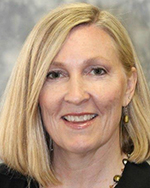Editor’s Note: The opinions expressed in this blog post are solely those of the author.
“The blazing July sun was welcomed as a gift in the crowded streets of Poplar. Whites were bleached dry by it, skin was toasted brown, the sunshine was both medicine and tonic….it could strengthen bones, make the spirits sing, and the world felt revived, rinsed clean, and full of fresh potential.”
In Episode 5 - Sister Julienne assists at a birth but there are complications and the newborn is in pain and she struggles that the Christian Science couple refuses medicine for their newborn. Things get more difficult as they are accused of harming their child. Barbara tries to communicate with a pregnant woman who can’t speak English. Sister Mary Cynthia returns and Fred meets a woman who catches his eye.
I always like watching the episode and seeing if I can determine the subtle nuances of the story lines before they completely unfold! With the bone fracture storyline it really brought up several issues. To me the issues were a) client choice and trust, b) differential diagnoses, and c) human fragility as a practitioner. As a Modern Day Midwife I have experienced all of these elements in my own practice. I have had clients that have declined treatments due to religious reasons. It can challenge your own beliefs and we are lucky that we have guidance with the ACNM Code of Ethics. As a midwife you must try to always respect basic human rights and the dignity of all persons as we develop a partnership with the woman. It is important to act without discrimination based on factors such as age, gender, race, ethnicity, religion, lifestyle, sexual orientation, socioeconomic status, disability, or nature of the health problem. It is important to always share information without bias, coercion, or deception. Just like Sister Julienne—this can be easier on paper than in reality. It can be hard and we are human.
When I was watching I started to think about what the differential diagnoses could be with the newborn bone fractures. I smiled as the other day I had a student nurse-midwife with me and we spent a lot of time on brainstorming possible differential diagnoses with a particular client. When we are working with clients and they present with a problem we think of the myriad of options that could be occurring. This is called making a differential diagnosis. A differential diagnosis is the distinguishing of a particular condition from other conditions that present with similar symptoms. I have never had a baby with brittle bone disease (osteogenesis imperfecta); but, I have heard of it. I put a resource below to learn more about this disorder. I think as a midwife we have all closed the door and really judged ourselves harshly when we did not live up to our expectations. I felt for Dr. Turner – and sometimes we expect ourselves to be more than human. There is a sense of always wanting to do the right thing—we can have extraordinarily high expectations for ourselves. Dr. Turner was faced with judgement—but it came from an internal source –and it was so fantastic to see his community rally around him. In these modern times there can be a fear of litigation –but that is for another blog post!
“Humanity is fragile. All the sunshine in the world can’t save the frail or make the delicate invincible. But LOVE has the power to strengthen and protect and guide us to a place we feel sheltered and fulfilled. Where it doesn’t matter if it rains for we are home and dry.”
RESOURCES
American College of Nurse-Midwives: Code of Ethics
To learn more about Brittle Bone Disease or Osteogenesis Imperfecta, take a look at the Osteogenesis Imperfecta Foundation
 Katie Moriarty (CNM, PhD, CAFCI, RN) is the Director of Nurse-Family Partnership at Detroit Wayne County Health Authority and currently serves on the regional board of directors for the American College of Nurse-Midwives. Prior to her current position, Katie served as the Associate Director of the Nurse-Midwifery Education Program at the University of Michigan.
Katie Moriarty (CNM, PhD, CAFCI, RN) is the Director of Nurse-Family Partnership at Detroit Wayne County Health Authority and currently serves on the regional board of directors for the American College of Nurse-Midwives. Prior to her current position, Katie served as the Associate Director of the Nurse-Midwifery Education Program at the University of Michigan.
Read More About Katie | Read All Posts by Katie